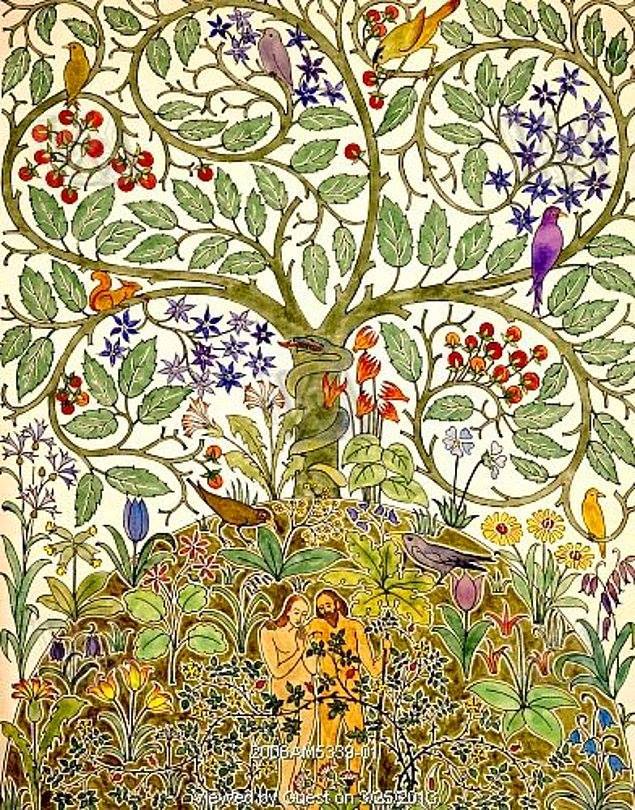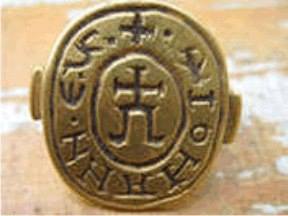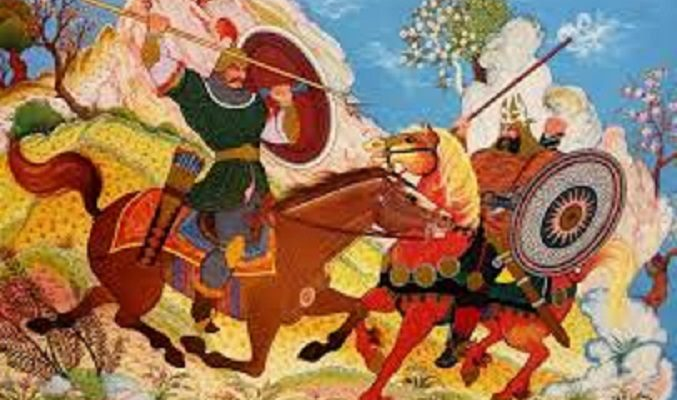Bunu biz demirik, İrlandiyalı tarixçi deyir…
«Dörd Ustadın dediyinə görə, Kelt dili İskit (sak) dili idi. Bu, Gaodhaldan «onu təmizləyən və bəzəyən», daha sonra Gaodhilg və ya «Gaelic» adlandırılan İskit dili idi.
«İskitlərin dillərinin ilk Valideynlərimizin (Adəm və Həvva) dilləri olduğuna inanmaq üçün bir səbəb var. Kelt, Teutonik və Slavyan xalqları skif mənşəli idilər, buna görə də bu xalqların danışdığı bütün ləhcələrin ana kökü skif dili idi. İrlandiyanın, qədim ildönümlərinin və salnamələrinin yazıldığı dildir.
«Japhetin (Yasəfin) oğlu, Magoqun oğlu Baoz oğlu PhoeniusaFaresaidh, yazıların ixtiraçısı idi və ondan sonra gələn nəslə Finikiya deyilirdi» … səhifə 9
Adı «Teuton», «bir tanrı» anlamında, Gotik Teuttdan, (yəni türkcə Gök Tanrı anlamında) törəmişlər. «Teutonlar» termini skif mənşəli müxtəlif xalqlara, böyük bir dilin (Kelt) müxtəlif ləhcələrində danışmışlar.

«Sklavonik və ya slavonik xalqları bəzən» sklavoniyalılar «adlandırılırdı və Almaniyada yaşayan skif irqi olan Romalı yazıçılarının slavi və ya sklavilərindən gəlirdilər. Adı «şan» mənasını verən Slavadan gəlir. Polşa, Rusiya, Prussiya və Avstriyanın bir hissəsi olan ölkəninin ərazilərinə yerləşdilər … səhifə 13.
«Mileziyalı və ya İsveçh Irlandiyalısı İskit ailəsindən olduqları üçün İskitin qısa bir şəcərəsini vermək uyğun olardı.
Nuhun oğlu Yafet (Japhet) skiflərin əcdadı idi. «İskit» adı yay istifadəsində bacarıq göstərən xalqlara tətbiq edilirdi.
Lüğətdə Dr. O’Brien, «İskit» sözünün Keltcə söz kökündən gəldiyini və İrland dilində oxatan və ya ox anlamını bildirir və bu törəmə çox aydın surətdə görünməkdədir. Skif xalqları, xüsusən də Partlar (Parflar, yəni kiçik Ərsaklar), hamısı məşhur oxatanlar idilər.
Qara dənizin şimalındakı Euxine və ya Yunan koloniyaları, İskit qonşularını eşitdikdə, tez-tez «Scuti», «Scythi (Skuzi)», «Shuten» adları ilə oxçu, atıcı və ovçu (aralarında çox sayda olan) adlandırırdılar.
İskitləri simvolizə edən «Schuten» adı bütün millətə tətbiq edildi. Bu söz və ya əvvəlki ilkin mənası hələ də İngilis, Alman, Litva, Fin, Latviya, Kurland, Lapponian, Estoniya və Prussiya dillərində qorunub saxlanılır. Bu da bütün bu xalqların skif mənşəli olduğunu sübut edən bir həqiqətdir.
İskitlər qədim dövrün ən döyüşkən və cəsur insanları sırasında idilər və müharibə arabalarında vuruşurdular. Günəşə, aya və küləklərə ibadət edirdilər və onların əsas tanrısı yunanların Ares adlandırdığı müharibə tanrısı idi; Qotlar, almanlar və skandinaviyalılar onu Odin və ya Wodin adlandırırdılar. Sakaların əcdadı olan Sakae; Sarmatlar, Sarmatların əcdadları; Basternae, Qotlar, Vandalllar; Daki və ya Dakiyalılar; Skandinaviyalılar, Almanlar; Fransanı fəth edən franklar; Suevi, Alanlar, Alemanni; Longobardlar və ya Lombardlar; və bir çox başqa tayfalar skif ailəsinin güclü millətləri idi. V əsrdə Attila dövründə Roma İmperiyasını devirən Asiya Hunlarını, bəzi yazıçılar İskit olduğunu yazmışdılar, lakin bu baxış səhvdir, çünki Hunlar monqol irqliydi və ya Tərtərdən idilər, İskitlər isə böyük Qafqaz irqi idi»… səhifə 14.

Irish pedigrees;or the Origin and Stem of the Irish Nation by JOHN O’HART
Let’s read…
«According to the Four Masters, the Celtic language was the Scythian; which was, from Gaodhal, who ‘refined and adorned it’, afterwards called Gaodhilg or ‘Gaelic’.»
«There is reason to believe that the Scythian was the language of our First Parents. AS the Celtic, Teutonic, and Slavonic nations were of Scythian origin, so was the Scythian language the parent stock of all the dialects spoken by those nations. The Celtic or Gaelic was the language of Ireland; in which were written the ancient Irish records, annals, and chronicles.»
Irish pedigrees;or the Origin and Stem of the Irish Nation by John O’Hart voli 730
» Phoeniusa Farsaidh, son of Baoth, son of Magog, son of Japhet, was the inventor of Letters; after him his descendants were called Phoenicians.» … page 9
«The name «Teuton» is derived from the Gothic teut, which signifies ‘a god’; and the term ‘Teutons’ has been applied to various nations of Scythian origin, speaking cognate dialects of one great language — the Celtic.»
«The Sclavonic or Slavonic nations were sometimes called ‘Sclavonians’; and were descended from the Slavi or Sclavi of the Roman writers — a Scythian race who dwelt in Germany. The name is derived from Slava, which signifies ‘glory’. The Sarmatians were also of Scythian origin, and settled in the terrirtory from them called by the Romans ‘Sarmatia’; which comprised the country now called Poland, and parts of Russia, Prussia, and Austria.» … page 13.
***
» As the Milesian or Scotic Irish Nation is descended from the Scythian family, it may not be out of place here to give a brief sketch of Scythia.
Japhet, son of Noah, was the ancestor of the Scythians. The name «Scythian» was applied to those nations who displayed skill in hunting and the use of the bow. In his Dictionary, Dr. O’Brien states that the word «Scythian» is derived from the Celtic word sciot, which, in the Irish language signifies a dart or arrow; and this derivation seems probable, as the Scythian nations, particularly the Parthians, were all famous archers. The Greek colonists on the north of the Euxine or Black Sea, hearing their Scythian neighbours frequently call archers, shooters, and hunters (who were very numerous among them), by the names of «Scuti,» «Scythi,» «Shuten,» or «Schuten»—each of which signifies Scythians, applied that name to the whole nation. This word, or rather its ancient primary signification, is still preserved in the English, German, Lithuanian, Finnish, Livonian, Courlandish, Lapponian, Esthonian, and Prussian tongues: a fact which goes to prove that all these nations are of Scythian origin.
» As the Milesian or Scotic Irish Nation is descended from the Scythian family, it may not be out of place here to give a brief sketch of Scythia.
Japhet, son of Noah, was the ancestor of the Scythians. The name «Scythian» was applied to those nations who displayed skill in hunting and the use of the bow. In his Dictionary, Dr. O’Brien states that the word «Scythian» is derived from the Celtic word sciot, which, in the Irish language signifies a dart or arrow; and this derivation seems probable, as the Scythian nations, particularly the Parthians, were all famous archers. The Greek colonists on the north of the Euxine or Black Sea, hearing their Scythian neighbours frequently call archers, shooters, and hunters (who were very numerous among them), by the names of «Scuti,» «Scythi,» «Shuten,» or «Schuten»—each of which signifies Scythians, applied that name to the whole nation. This word, or rather its ancient primary signification, is still preserved in the English, German, Lithuanian, Finnish, Livonian, Courlandish, Lapponian, Esthonian, and Prussian tongues: a fact which goes to prove that all these nations are of Scythian origin.
***
The Scythians were among the most warlike and valiant people of antiquity, and fought chiefly in war-chariots. They worshipped the sun, moon, and winds, and their chief deity was their god of war, called by the Greeks ‘Ares; and Odin or Wodin, by the Goths, Germans, and Scandinavians. The Sacae, ancestors of the Saxons; the Sarmatae, progenitors of the Sarmatians; the Basternae, the Goths, the Vandals; the Daci or Dacians; the Scandinavians, the Germans; the Franks, who conquered France; the Suevi, Alans, Alemanni; the Longobards or Lombards; and many other tribes, were all powerful nations of the Scythian family. The Huns of Asia, who, under Attila in the fifth century, overran the Roman empire, are stated by some writers to have been Scythians; but that opinion is incorrect, for the Huns were of the Mongol or Tartar, while the Scythians were of the great Caucasian race. «.. page 14
Sayın Semra Bayraktar’a təşəkkür edirəm.
TARİX VƏ ARXEOLOJİ

